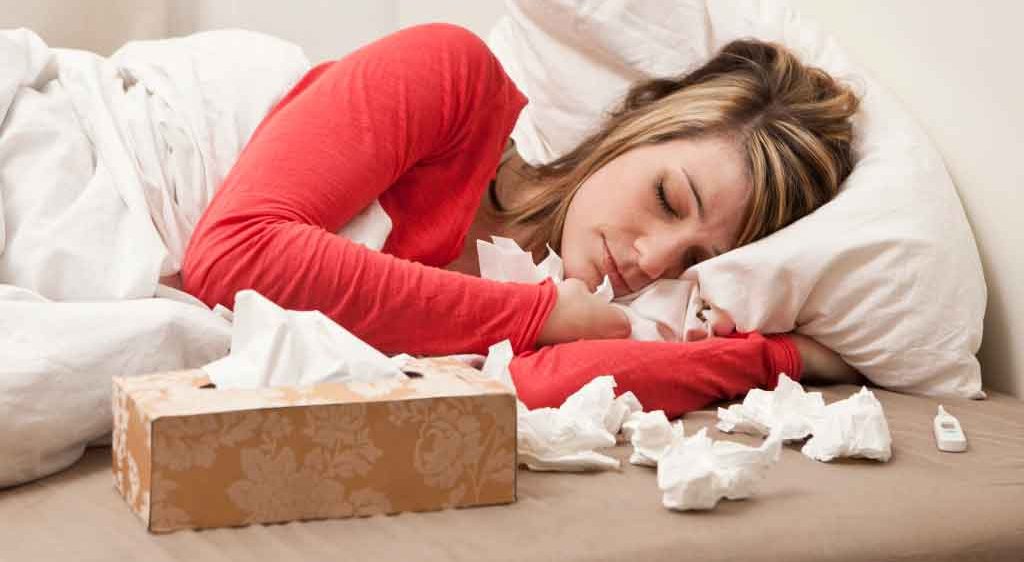Sleep Loss Increases Your Chance of Infection

Here’s more evidence that getting fewer than six hours of sleep is a bad idea, even if you’ve convinced yourself you’re fine.
Sleeping too little or badly weakens you in many ways. For some time, evidence has indicated that lack of sleep can make you more susceptible to colds, for example.
It may also increase your chance of other kinds of infections, including urinary tract infections and gastrointestinal virus symptoms, according to a small study in Norway. Researchers found that the risk of infection was 27 percent higher in patients who slept six or fewer hours a night, compared to those who slept seven to eight hours, considered the rule of thumb for adults.
In a study drawing on data from more than half a million British and Finnish participants over 23 years, researchers found that a diagnosis of insomnia almost tripled the risk of severe respiratory illness and increased the risk of the flu by five times among the Finns. It also had a measurable though smaller impact in the British data, which included more milder cases reported from doctor’s offices rather than hospitals.
In addition, the study found evidence that insomnia was linked to higher risk of a severe COVID-19 infection and, less powerfully, to any coronavirus diagnosis.
YOU MIGHT ALSO LIKE: Hand Washing Helps Control Community Infection Outbreaks
When researchers look at the short-term effects of losing sleep, they find it raises blood measures of inflammation, an immune reaction. One review of 72 studies measured proinflammatory cytokine IL-6 and C-reactive protein, two of inflammation measures, and directly connected them to losing sleep.
The research is one reason you may have heard advice to get enough sleep before having a vaccine shot, as sleep is necessary for the most effective immune response.
Chronic insomnia or lack of sleep may lead your immune system to chronic inflammation, which lowers its effectiveness to fight an acute threat like a flu.
“Sleep often takes a back seat to other health behaviors like nutrition and exercise,” says Aric Prather, PhD, lead author of one study documenting lack of sleep leading to more colds. His experiment, he says, “provides some really clear evidence for those people who get less than five or six hours of sleep — there really is a clear biological cost.”
Some other infection-fighting tips:
- Disinfect your smartphone, office surfaces, and gym equipment.
- Rinse your nose with saline solutions.
- Avoid sick people.
- Wear a N-95 mask in places where infection rates are high and you’ll be face to face with other people.
Airborne droplets from sneezes and coughs can pass through other types of masks even if they fit snugly. Any mask does more to protect other people from catching your infection than the other way around. If you are chronically short of sleep, however, the science suggests you’re more likely to harbor an infection than you might guess.
Updated:
March 20, 2023
Reviewed By:
Christopher Nystuen, MD, MBA and Janet O'Dell, RN